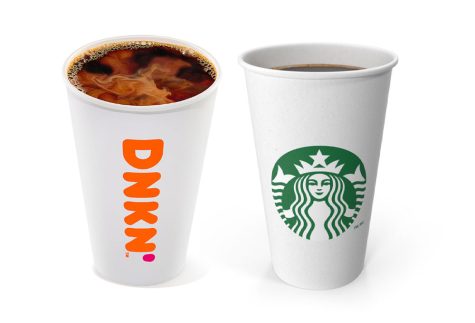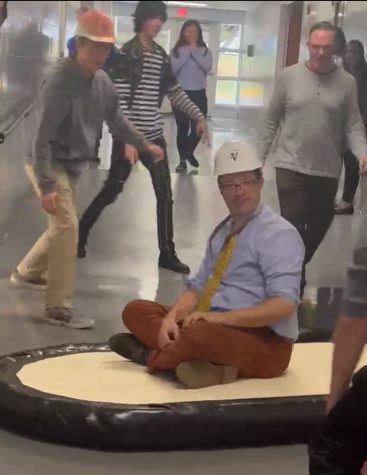Take the Leap: Sleep
Take the Leap: Sleep
It is no secret that nearly every doctor, parent, and teen health magazine has tried to instill the importance of sleep for adolescent development. We have all heard time and time again that teenagers should be getting eight to ten hours of sleep each night. Despite the prevalence of this suggestion, according to a sleep study at Stanford University, “87 percent of high school students in the United States get far less than the recommended eight to ten hours”. So, why exactly is sleep important and why should teens be getting more of it?
Many factors in our adolescent lives take control over our days and often times leave us feeling like there is no time to sleep. A prime example of such a factor is school. Specific to Verona, middle school started at 8:20 am while high school starts at 8:00 am. Even though we are presumably going to sleep later as we take on more responsibilities and move deeper into adolescence, school starts earlier.
Twenty minutes of sleep or even an extra hour of sleep might not seem significant, but it can really aid the mental health of students. “A study of nearly 28,000 suburban high school students, published earlier this year in the Journal of Youth and Adolescence, found that each hour of lost sleep is associated with a 38 percent increased risk of feeling sad or hopeless and a 58 percent increase in suicide attempts”. This statistic supports the fact that sleep actually carries out brain processes that are critical to regulating emotions. Without sleep, we are a detriment to our own health.
Besides teenagers’ mental health, lack of sleep put their lives in danger. Sleep deprivation greatly impairs reaction times which is a key skill that is needed when driving. If a parent would not let their child drive drunk, why let them drive drowsy to school? As expressed by Megan Nichols, sleep and lifestyle blogger, both “driving while sleepy and driving while drunk have the potential to double your risk for a car accident”. Driving with your reaction time impaired drunk or not is extremely dangerous for teens. Driving drunk accounts for over 10,000 fatal crashes annually while driving drowsy accounts for 6,000 fatal car crashes annually.
In order to help yourself out of a chain of unfortunate events attributed to sleep deprivation it is important to catch up on your Z’s. Dr. Mary Carskadon, a professor of psychiatry at Brown University and director of chronobiology and sleep research at Bradley Hospital in Rhode Island describes sleep deprivation as a cloud or haze that weighs down the student suffering. She even stated, “One of the metaphors I use is that it’s like having an astigmatism. You don’t realize how bad your vision is until you get glasses or in this case, good sleep”. The first step to solving this problem is clearly acknowledging that it exists and affects millions of students across the globe.
In interviewing multiple high school seniors, Verona is no exception to the stigma of sleep deprivation. When ten students were asked if they feel drowsy or unmotivated throughout the school day due to a lack of sleep, the answer was unanimous: yes, all the time. The students were also asked how many hours of sleep they normally get on a school night and their answers ranged from five to seven hours of sleep. These numbers are clearly below the range of doctor-recommended eight to ten hours of sleep. In order to stop this unhealthy cycle, there must be an understanding that mental health is at risk for each and every teenager who cannot obtain enough Z’s. Lack of sleep is a key detriment when it comes to losing one’s mental clarity and their ability to control their emotions. In order to stay sane we must take the leap: sleep.













